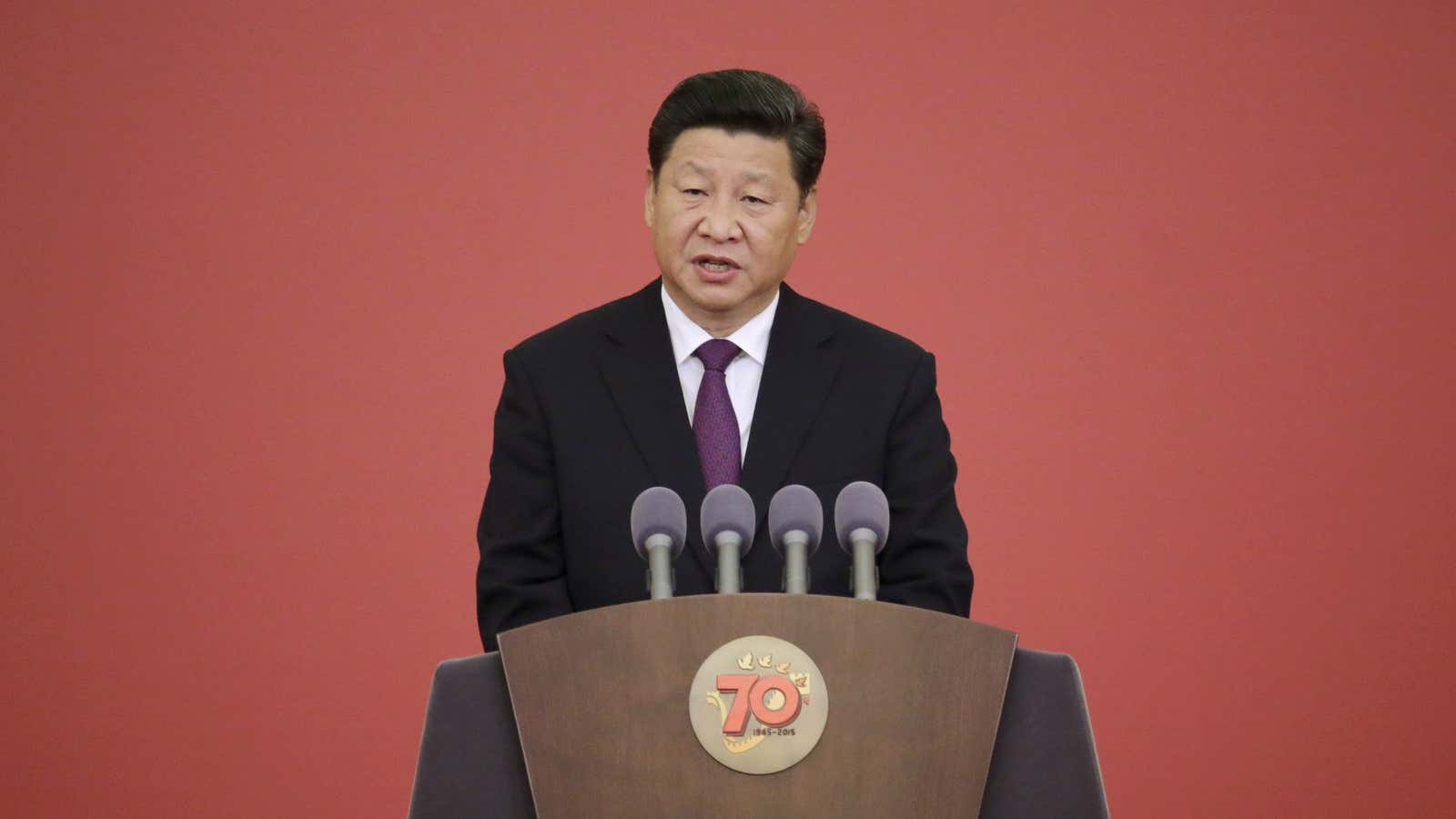China’s top decision-making body, the Political Bureau of the Communist Party, announced yesterday (Jan. 22) the establishment of a new agency to integrate the country’s military and civilian capacities—once again headed by president Xi Jinping.
The new commission will become the central agency in decision-making and coordination of “major issues regarding integrated military and civilian development,” according to a statement released after a Politburo meeting yesterday. The commission will directly report to the Politburo, but its full membership or detailed roles were not disclosed.
In the past few years, China has been guiding private investment and technology to further serve defence purposes, hoping that resources would be shared between the two sectors. In 2015, a top military officer called for China to build a military-industrial complex, much like the US model.
During the meeting, the Politburo also called for efforts to uphold Xi as the party’s “core,” a title that he officially assumed in October. Xi is undoubtedly the most powerful Chinese leader in decades—which is reflected in part through his lengthy, and apparently ever-growing, list of formal titles.
Xi has been aggressively consolidating power around himself since taking office in late 2012. Like his predecessors, he heads the party and the military. (The US president only takes on the role of commander-in-chief of the military.) But Xi has also made himself head of several “commissions” or “leading groups” that are secretive party agencies, but essentially have the final say on everything from economic reforms to state security to cyberspace affairs.
Mao Zedong invented the system (link in Chinese) to ensure that party agencies, rather than government entities, act as the main decision-making bodies in Chinese politics. His most notorious effort was the Central Cultural Revolution Group, which steered his decade-long sociopolitical movement that led to millions being persecuted across China.
Xi seems to have adopted Mao’s playbook to consolidate his power. Some of the most high-profile groups or commissions headed by Xi only came to existence under his rule. For example, the Central Leading Group for Comprehensively Deepening Reforms—set up in November 2013 to steer reforms on all levels—and the Central National Security Commission (CNSC), were established at around the same time to combat terrorism and separatism.
Those groups have been efficient—after the CNSC’s establishment, Xi kicked off a string of crackdowns on civil society, and enacted a series of draconian laws focusing on state security, including ones involving counter-espionage, counter-terrorism, and foreign NGOs. And they have become more productive: the deepening-reforms group issued 96 edicts in 2016, up from 65 in 2015, and 37 in 2014.
Xi’s power grab has effectively sidelined other top party officials, such as premier Li Keqiang. The party’s 19th congress this fall will likely offer signs over whether Xi intends to stay in power beyond 2022, when he is due to step down. Many more titles could be created in the next five years.
